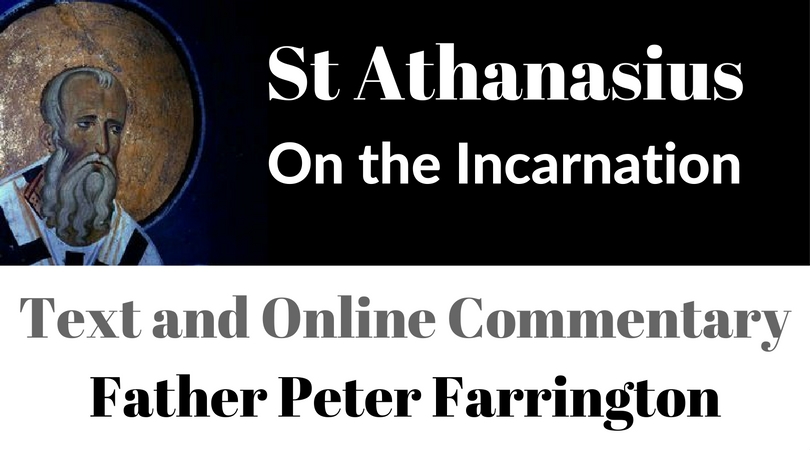
On the Incarnation – Chapter 7
Text
1. But just as this consequence must needs hold, so, too, on the other side the just claims of God lie against it: that God should appear true to the law He had laid down concerning death. For it were monstrous for God, the Father of truth, to appear a liar for our profit and preservation.
2. So here, once more, what possible course was God to take? To demand repentance of men for their transgression? For this one might pronounce worthy of God; as though, just as from transgression men have become set towards corruption, so from repentance they may once more be set in the way of incorruption.
3. But repentance would, firstly, fail to guard the just claim of God. For He would still be none the more true, if men did not remain in the grasp of death; nor, secondly, does repentance call men back from what is their nature—it merely stays them from acts of sin.
4. Now, if there were merely a misdemeanour in question, and not a consequent corruption, repentance were well enough. But if, when transgression had once gained a start, men became involved in that corruption which was their nature, and were deprived of the grace which they had, being in the image of God, what further step was needed? or what was required for such grace and such recall, but the Word of God, which had also at the beginning made everything out of nought?
5. For His it was once more both to bring the corruptible to incorruption, and to maintain intact the just claim of the Father upon all. For being Word of the Father, and above all, He alone of natural fitness was both able to recreate everything, and worthy to suffer on behalf of all and to be ambassador for all with the Father.
Commentary
We have already seen that it was not possible for God to simply forget what Adam had done, when he disobeyed the one command God had given. It had consequences which changed the relationship of Creator and Created, because once Adam had chosen death and non-being these gained the mastery over him. God had spoken truth. To break the command would lead to death. And it was not possible that having spoken the truth for man’s salvation, he should be made out to be a liar.
But now St Athanasius considers that some will ask why Adam could not simply repent of his sin. We are used to this being a means of finding forgiveness with God. Why could this not apply to Adam? St Athanasius addresses this in section 3. In the first case it would again mean that God had not spoken the truth when he described the consequences of sin. It would be like a parent telling a child that if they got out of bed at night a monster would eat them, and then the child, getting out of bed, discovers that no monster is found.
In the second case, repentance is useful and necessary for moderating our behaviour. By it we confess that we have made a mistake and will act differently in the future. But it does not change the fact that we have already sinned and sin has consequences. If I jumped off a cliff and fell onto the rocks and broke most of the bones in my body I might well repent of my foolishness and insist that I would never do something so stupid again. But it would not change the fact that my bones were broken and I might suffer the consequences in my body for the rest of my life.
St Athanasius elaborates on this inability of repentance to deal with the consequences of Adam’s sin. If God had said simply, I would like you to avoid eating the fruit of this tree if that is possible, then Adam might have been treated as one who had not entirely fulfilled the will of God, and might repent of his weakness. But this was not the case with the command. It was made clear that there were lasting consequences, and when Adam broke the command these consequences took hold. There was not simply a weakness in behaviour but a corruption of nature. Or rather the loss of the grace of the indwelling Holy Spirit allowed the natural corruption of created beings to gain force.
Repentance could not restore what had been lost, the grace of God. What was needed was that the Word of God who had made man in the beginning, should himself act to restore, renew and recall man to that life for which he had been created.
St Athanasius teaches that it was down to the Word of God alone to restore man, who had fallen into natural corruption, back to the grace of incorruption. And it was only he who was both able, as God himself, to recreate man, and in becoming man, to suffer the consequences of Adam’s sin on our behalf and as our representative before God.
We must be clear that there is no mention here at all of God being offended, or even less of being infinitely offended. It was because he could not bear to see his own creation being lost due to the deceit of the devil, and because he alone could restore man to the blessed state for which he was created, that the Word was incarnate.
If you find this material interesting and helpful then please purchase one of the eBooks published by Father Peter Farrington and available for immediate download from most locations at:-

One Response to "Understanding “On the Incarnation” – Chapter 7"